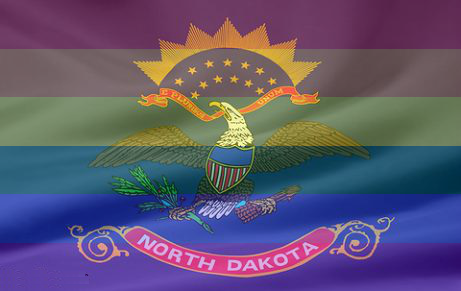In North Dakota A Tectonic Political Shift On Gay Marriage

Something pretty interesting happened last week. Attorney General Wayne Stenehjem, candidate for the NDGOP nomination to run for governor, declared publicly that he supports legal gay marriage.
If you didn’t catch the news I’m not surprised. He made the comments during an appearance on a radio show with declining ratings and little news value, but in making them he joined his two opponents for the Republican nomination in supporting legal gay marriage.
“Yes, I do support it,” Stenehjem said. “I understand that it’s the law of the land and that is something that we’re all going to have to get used to.”
Both state Rep. Rick Becker, a libertarian, and Fargo businessman Doug Burgum, a social liberal who has been outspoken on this topic, also support legal gay marriage.
This is a pretty astounding development when you consider that a little more than a decade ago, on the November ballot in 2004, the North Dakota electorate voted in a constitutional amendment to define marriage strictly as a union between one man and one woman. It was Measure 1 on that ballot, and it got over 73 percent of the vote.
[mks_pullquote align=”right” width=”300″ size=”24″ bg_color=”#ffffff” txt_color=”#000000″]I wonder if anyone, on the day after election day in 2004, would have predicted that in just a little more than ten years in North Dakota that gay marriage would not only be legal but embraced by every single Republican candidate for the state’s top office?[/mks_pullquote]
It’s certainly true that American attitudes generally have been shifting very quickly when it comes to gay marriage, and it’s also true that the Supreme Court’s ruling last year in Obergefell v. Hodges has essentially tied the hands of policymakers on the issue of gay marriage anyway, but this shift is remarkable none the less.
After all, there is still plenty of opposition to gay marriage in America, and North Dakota has historically been quite socially conservative. I don’t think Republican politicians in North Dakota would be saying that they support gay marriage if there was still anything approaching 73 percent opposition to it, no matter what the Supreme Court says.
I wonder if anyone, on the day after election day in 2004, would have predicted that in just a little more than ten years in North Dakota that gay marriage would not only be legal but embraced by every single Republican candidate for the state’s top office?
One thing which bothered me about the manner in which gay marriage became legal in North Dakota was how little time the activists pushing for it spent trying to change the law through the democratic process, either at the Legislature or through the initiated measure process (my previous post). Social change is more peaceful, I think, when it is perceived as the will of the people and not the will of activists and judges.
I think we’d all have been better off if gay marriage were legal in North Dakota because the people and/or their elected representatives voted it in. And judging by this position shift on the 2016 campaign trail, it was probably more possible than gay rights activists thought.




